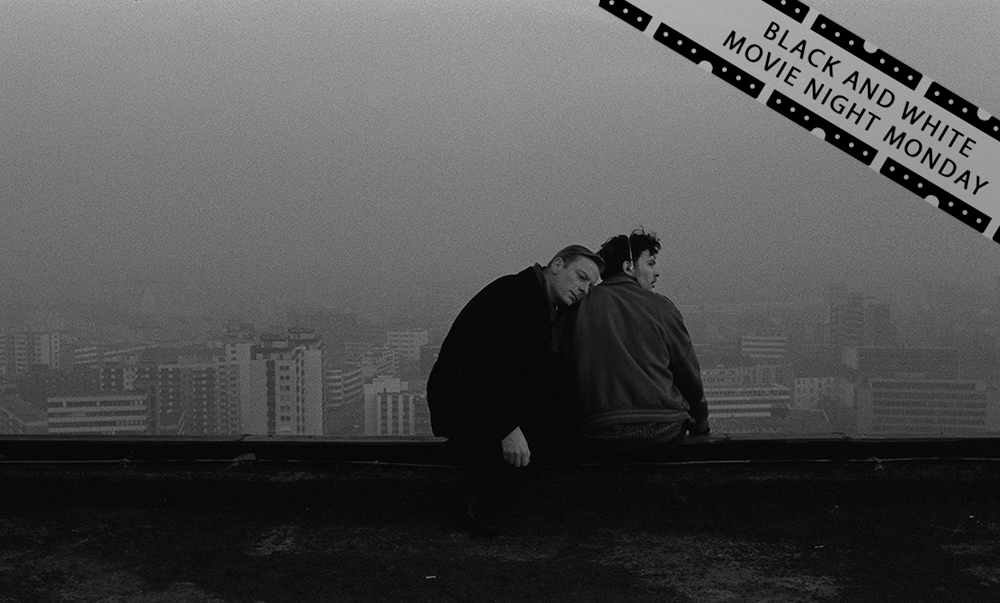
From the beginning of this film, a poem is presented that prepares us for what we are about to experience…”When the child was a child.” This theme and this phrase is repeated throughout the film, representing the longing of the angels above, who are unable to feel the feelings that a child has. And that’s what this film is all about: angels. They linger through the city above, and sit with individuals, hearing their thoughts and innermost desires, as well as their fears. They are detached observers, forced to watch at a distance, never able to touch or communicate with humanity, (not too dissimilarly from a film goer, observing casually at a distance the characters on screen). And we as the audience feel as these angels do. The camera floats and glides through the city above, through rooms, through busy libraries and streets. And we hear as the angels hear the world. This lasts for the entirety of the first half of the film, jumping from individual to individual and hearing their thoughts. It’s a unique, lengthy approach that allows the audience to truly sympathize with the angels because the film has now shown us how they feel.
As the film progresses, we are treated to hints of color film, which was altogether unexpected for me on a first viewing. Soon enough, we learn that the colored world is the view of mankind, while the angel’s gaze remains stuck in black and white. Is it possible to escape this life? This is the question faced by the angel Damiel (Bruno Ganz), who begins to grow weary of everlasting life day after day, never experiencing the world he observes. Wender’s camera makes a point to emphasize that the angels look down on mankind (literally) and mankind looks up at them. And that is why is so special when, for the first time, Damiel looks up at a trapeze artist and feels something he never has before. He sympathizes with her loneliness, but more importantly, he desires to fly as she does within the bounds of human existence. After all, what meaning is there in flying when there are no limits? Damiel longs for this, and so do we. At the end of the day, the poetry of this film isn’t difficult or hard to catch, though it might be hard to put into words. Wim Wenders seems to be making a comparison to us as the audience, watching the angels watching the humans, learning how to feel alive…
